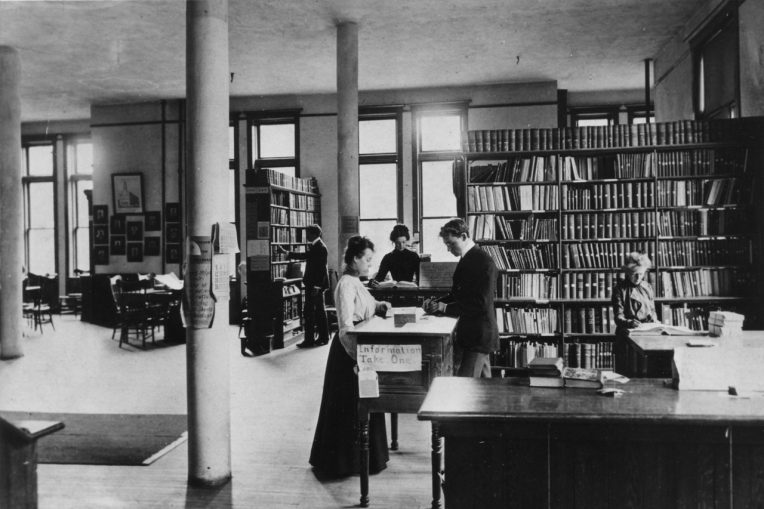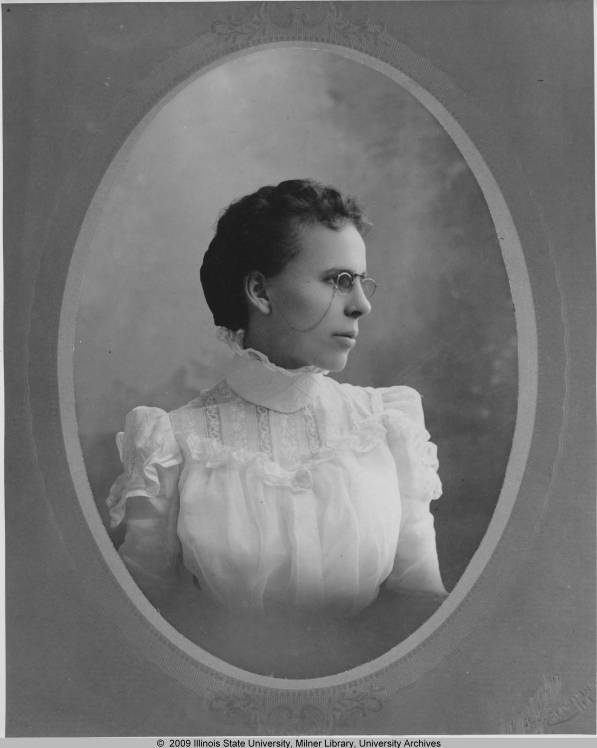March is Women’s History Month, and this year marks the 50th anniversary of the Women’s, Gender, and Sexuality Studies Program. To commemorate, this is the first in a series of articles honoring the women of Illinois State Normal University. Olive Lillian Barton and June Rose Colby were among the first faculty members at Illinois State Normal University, and both took an active role in supporting women on and off campus.
Olive Lillian Barton
Olive Lillian Barton began her time at Illinois State Normal University as a student in 1897. She graduated from ISNU in 1899 with her teaching degree, and after being principal at Lexington and Pittsfield high schools and teaching at Mt. Vernon Township High School, she accepted a position as an assistant in the mathematics and English departments in 1906. She taught sixth and seventh grades at the model school, now known as Thomas Metcalf School. In 1911, she became the dean of women at the University, a predecessor to the dean of students. She helped students find housing, choose courses, and advised them on careers. Barton even wrote in The Vidette advocating for more housing for nontraditional students, like married couples with or without children and faculty members, but mainly any women who did not want to live in dorms. She also organized the Women’s League in 1925 to “create the spirit of union among the college women,” that also worked with administration to “keep high social and ethical standards.”
On April 18, 1917, just one day after the United States declared war on Germany in World War I, Barton called a meeting for the women on campus to organize the ISNU Red Cross auxiliary in support of the war effort. June Rose Colby was the chair of the organization, and they encouraged women on campus to donate one hour a week sewing clothes for the soldiers and hospitals. Barton fought for women’s rights and hoped that this work for the war effort would prove that women were invaluable to the country. She wrote in the 1919 edition of the Index:
“Such a tabulation of the woman-power of the country has value not alone for war-time. It looks toward an intelligent classification of its citizenship of permanent value. It means that in the near future we shall have or will secure accurate data concerning the intellectual and vocational resources of the nation.”
Barton retired in 1943 from poor health, and the Barton Residence Hall, one half of the Dunn-Barton Hall, was named in her honor in 1950. The dorms were demolished to make room for the new student fitness center. She died on March 2, 1960.
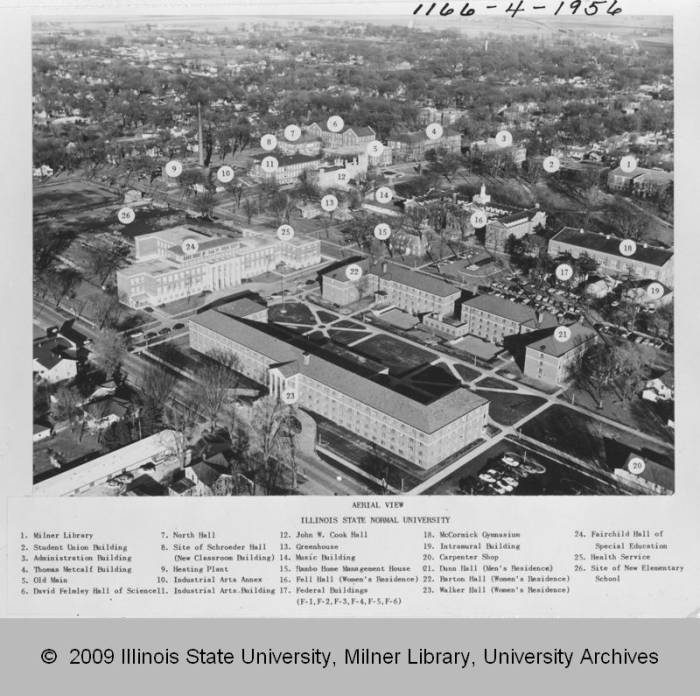

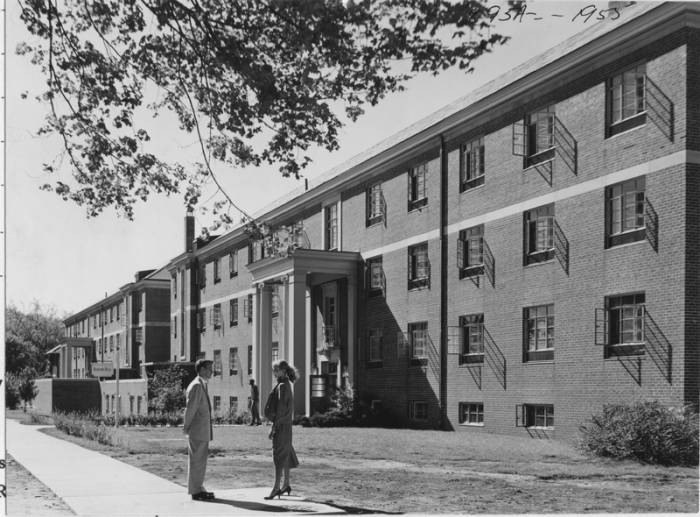
June Rose Colby
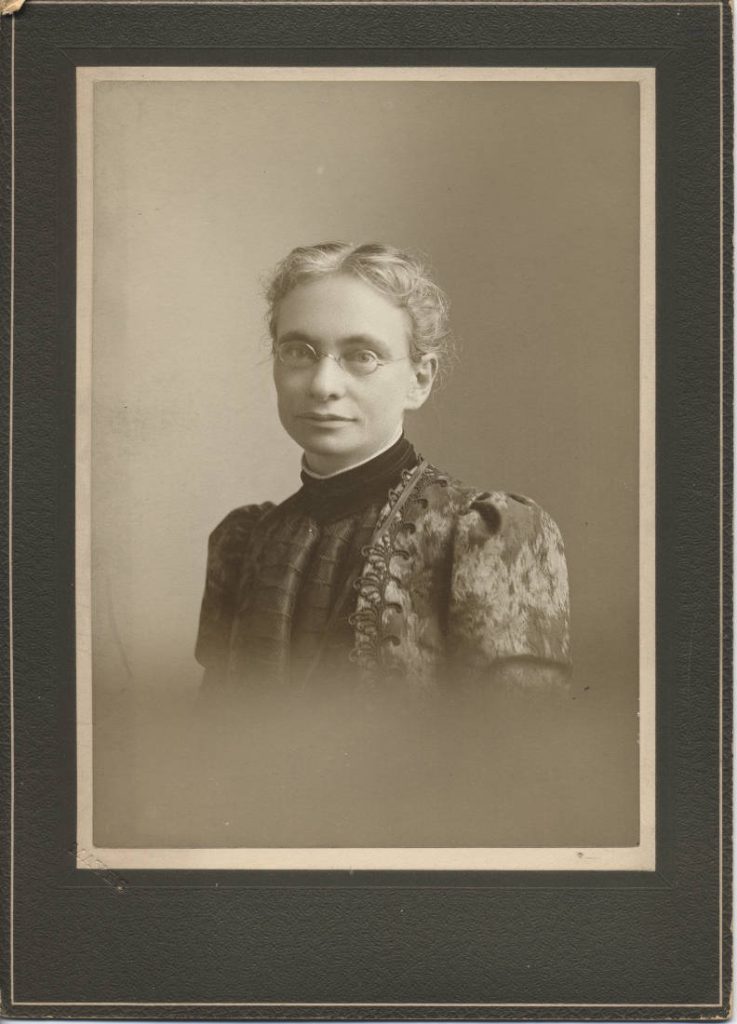
June Rose Colby became an English professor at Illinois State Normal University in 1892, the first female faculty member at the University, and also served as a preceptress, which later became known as the Dean of Women. She was involved in the suffragette movement and started the Sapphonian Society, a women’s debate club that promoted intellectual and independent thought.
Colby’s mother taught her about writing, the importance of education, and living beyond the societal pressures on women. She encouraged her children to go to school “as a means of personal fulfillment.” Colby was more concerned with her education, teaching others, and women’s rights than fashion and finding a husband, like most women of her time. She always sewed pockets into her skirts and dresses, “insisting that pockets were as useful to women as to men.”
Colby started the Sapphonian Society in response to a popular article in 1900 that blamed women teachers for the lower enrollment of boys in high school and accused them of feminizing education. She used this club to confront that harmful narrative and combat it. Colby used different strategies under the guise of a literary club to help the women students come to their own conclusions about their own rights. Discreet rhetoric focused more on a “subtle, private, and conversational deposition than many traditional rhetorics and also serves to solidify the rhetor’s ethos as an ally, guide, and mentor.” This strategy translated into Colby’s advocacy. She would rather work behind the scenes of a movement and push it forward by promoting a deeper understanding of the issues.
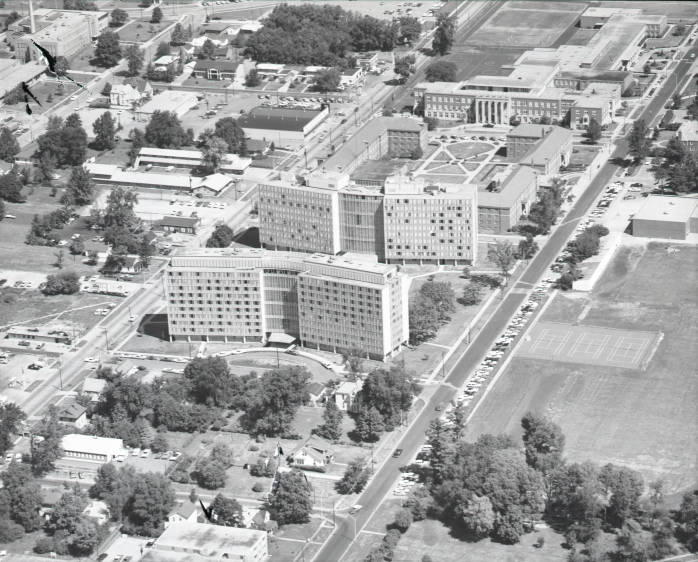
ISNU president David Felmley had conflicting views about feminization of schools. Publicly, he avoided the topic. In a paper titled “Discussion of Superintendent Problems,” he wrote that girls are only smarter than boys because students are taught by women, and therefore taught women’s ideas, not men’s. In a letter to a potential woman student, he stated that “the most powerful and original minds do not readily submit to the routine of college life,” referring to male students. “The boy has his rights,” Felmley wrote, “the course of instruction should be adjusted to his needs.” In another letter, he said men are “wiser and… saner.” Breaking from her usual silent activism, Colby responded to sexist comments like these from Felmley by writing an editorial in the February 4, 1908, edition of The Vidette titled “Some Often Forgotten Aspects of the Relation of Women to the Industrial World.” She wrote that women have not “invaded the field of men’s labor,” but rather the rise in manufacturing imposed on traditional women’s roles: preparing and preserving the meat men hunted, spinning wool for fabric and sewing clothes and other textiles, raising livestock, gardening, and much more, all while raising children. Men took over most of that in factories and demanded a fair wage and respect, even though those tasks were merely expected of women before.
Colby retired in July 1931, after being involved in several national organizations devoted to women’s rights and education, and writing texts for higher education across the country, and after 31 years at ISNU. She died on May 11, 1941, in her home, where she owned a full jar of rose petals, each one dedicated to a happy occasion in her life. The Colby Residence Hall, one half of the Atkin-Colby Hall, was named in her honor in 1962. The dorms were demolished in 2016 when they did not meet the new state fire sprinkler codes and deemed too old to be updated.
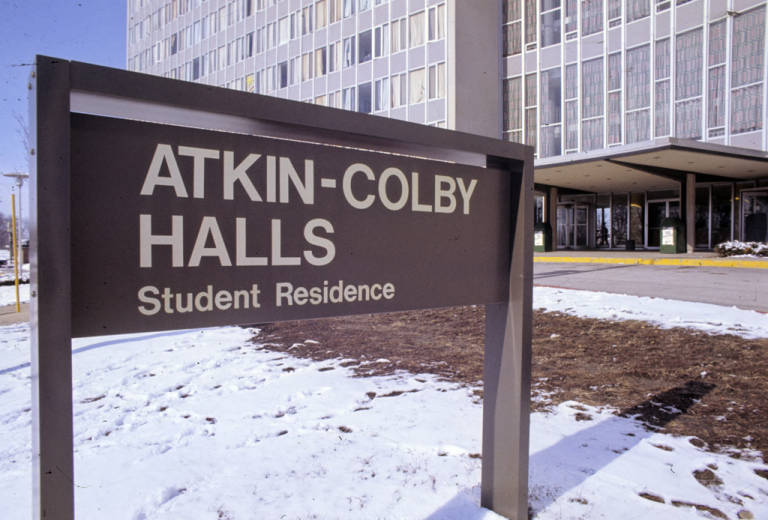
Colby’s writing can be found in the online exhibit “Underpinnings and Equal Terms”, including “Some Often Forgotten Aspects of the Relation of Women to the Industrial World,” “The Girl and the Library,” and two essays on the importance of literature. The June Rose Colby Papers is a collection of manuscripts, essays, exams, and published works from high school to her career at ISNU. The collection can be accessed at the Rayfield Archives.
